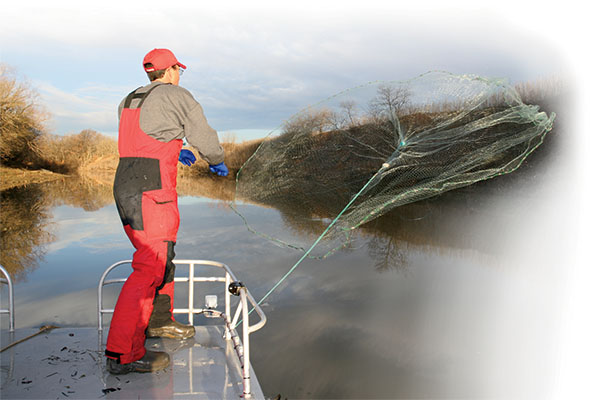Welcome to the world of Fishing Business, where success is not just a catch; it’s a skill. In this guide, we’ll delve into the insights and strategies that can turn your fishing venture into a thriving business. From navigating the waters of competition to reeling in customer satisfaction, we’ve got you covered. Let’s embark on a journey to Casting a Net for Success in the Fishing Business.
Table of Contents
Understanding the Fishing Business Landscape
Delve into the nuances of the Fishing Business landscape by conducting a comprehensive analysis of market trends, sustainable practices, and emerging opportunities. Gain insight into the intricacies that define success in this industry, understanding not only the preferences of the target market but also the importance of environmentally responsible practices. Equally crucial is mastering the regulatory currents that govern the fishing domain.
Navigate through legal requirements, environmental regulations, and industry standards with precision to ensure the seamless operation of your fishing business. By staying informed and adaptable to the ever-shifting tides of the fishing industry, you can position your business for long-term success in this dynamic and rewarding field.
Crafting a Successful Fishing Business Strategy

- Business Plan Foundation:
- Executive Summary: Provide a concise overview of your Fishing Business, including its mission, vision, and key objectives.
- Company Description: Detail your business structure, location, and any unique aspects that set you apart.
- Market Analysis: Conduct a thorough analysis of the target market, identifying customer demographics, needs, and trends.
- Competitive Positioning: Assess competitors in the fishing industry, highlighting your unique selling points and strategies to outperform them.
- SWOT Analysis: Evaluate internal strengths and weaknesses, as well as external opportunities and threats.
- Goals and Objectives: Define short-term and long-term goals, ensuring they align with your overall vision.
- Financial Projections:
- Budgeting: Develop a comprehensive budget covering startup costs, operational expenses, and potential revenue streams.
- Revenue Projections: Estimate sales based on market research, taking into account seasonality and industry trends.
- Profit and Loss Statements: Create detailed financial statements, projecting profitability over time.
- Cash Flow Management: Develop strategies to maintain healthy cash flow, considering potential fluctuations in business.
- Operational Plan:
- Supply Chain Management: Establish relationships with reliable suppliers for fishing equipment, bait, and other necessities.
- Regulatory Compliance: Understand and adhere to fishing regulations and licensing requirements in your operating area.
- Staffing: Outline staffing needs, including hiring plans, training programs, and employee retention strategies.
- Technology Integration: Leverage technology for inventory management, online bookings, and customer engagement.
Marketing Tactics for the Fishing Niche

- Online Presence:
- Website Development: Create a user-friendly website with detailed information about your services, fishing locations, and booking options.
- Search Engine Optimization (SEO): Optimize your website for relevant keywords to enhance visibility in search engine results.
- Online Booking System: Implement an efficient online booking system to simplify the reservation process for customers.
- Social Media Strategies:
- Content Creation: Develop engaging content related to fishing, such as videos, photos, and blog posts, to share on platforms like Instagram, Facebook, and YouTube.
- Community Engagement: Foster a community around your brand by encouraging user-generated content, responding to comments, and participating in fishing-related discussions.
- Partnerships and Sponsorships:
- Local Collaborations: Partner with local businesses, such as hotels, restaurants, or tourism boards, to cross-promote services.
- Sponsorship Opportunities: Explore sponsorships with fishing tournaments, events, or influencers to increase brand visibility.
- Customer Loyalty Programs:
- Repeat Customer Incentives: Offer discounts, exclusive fishing trips, or loyalty points to encourage repeat business.
- Referral Programs: Implement referral incentives to encourage satisfied customers to refer friends and family.
- Educational Content:
- Tutorials and Guides: Share fishing tips, techniques, and safety guidelines through various channels, positioning your business as an authority in the fishing niche.
By combining a well-crafted business plan with targeted marketing tactics, your Fishing Business can establish a strong foundation for success in a competitive market. Regularly evaluate and adjust your strategies based on industry developments and customer feedback to ensure sustained growth and customer satisfaction.
Customer Satisfaction and Retention

Set your Fishing Business apart by delivering exceptional customer service. Explore strategies to exceed customer expectations, build loyalty, and turn satisfied customers into brand advocates. Forge lasting connections with the local community. Discover the significance of community engagement, responsible fishing practices, and corporate social responsibility in building a positive reputation for your Fishing Business.
Conclusion
Casting a Net for Success in the Fishing Business requires a blend of industry knowledge, strategic planning, and a commitment to excellence. By navigating the dynamic landscape, embracing sustainability, and prioritizing customer satisfaction, your Fishing Business can thrive in the vast sea of opportunities.
Frequently Asked Questions
Q: How can I start a small-scale fishing business?
Embark on your Fishing Business journey with careful planning, market research, and compliance with local regulations. Consider starting with a niche or identifying a unique selling proposition to stand out.
Q: What are the key challenges in the fishing industry?
The fishing industry faces challenges such as overfishing, environmental concerns, and regulatory changes. Adapting to sustainable practices, staying informed, and embracing innovation can help overcome these challenges.
Q: How can I market my Fishing Business online?
Create a strong online presence through a professional website, social media, and online listings. Share engaging content, highlight your unique offerings, and leverage digital marketing techniques to reach a broader audience.
Q: What role does technology play in modern fishing businesses?
Technology enhances efficiency in fleet management, navigation, and even fish tracking. Embrace innovations like GPS, sonar systems, and data analytics to optimize operations and stay competitive.
Q: How can a fishing business contribute to environmental conservation?
Implement sustainable fishing practices, adhere to catch limits, and support marine conservation initiatives. Communicate your commitment to environmental responsibility, fostering a positive image for your Fishing Business.
Q: How important is customer satisfaction in the fishing industry?
Customer satisfaction is crucial for long-term success. Focus on delivering quality products, personalized service, and building strong relationships to create a loyal customer base.



















